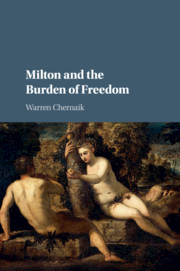Book contents
- Milton and the Burden of Freedom
- Milton and the Burden of Freedom
- Copyright page
- Dedication
- Contents
- Acknowledgements
- Introduction Free to Fall
- 1 Milton’s Post-Calvinist Theology
- 2 ‘Providence Thir Guide’
- 3 The Unpolluted Temple of the Mind
- 4 Classical and Biblical Republicanism
- 5 Victory’s Crest
- 6 Monarchy and Servitude
- 7 God’s Just Yoke
- 8 ‘Tyrannie Must Be’
- Postscript
- Notes
- Bibliography
- Index
- References
Bibliography
Published online by Cambridge University Press: 09 March 2017
- Milton and the Burden of Freedom
- Milton and the Burden of Freedom
- Copyright page
- Dedication
- Contents
- Acknowledgements
- Introduction Free to Fall
- 1 Milton’s Post-Calvinist Theology
- 2 ‘Providence Thir Guide’
- 3 The Unpolluted Temple of the Mind
- 4 Classical and Biblical Republicanism
- 5 Victory’s Crest
- 6 Monarchy and Servitude
- 7 God’s Just Yoke
- 8 ‘Tyrannie Must Be’
- Postscript
- Notes
- Bibliography
- Index
- References
- Type
- Chapter
- Information
- Milton and the Burden of Freedom , pp. 254 - 268Publisher: Cambridge University PressPrint publication year: 2017

